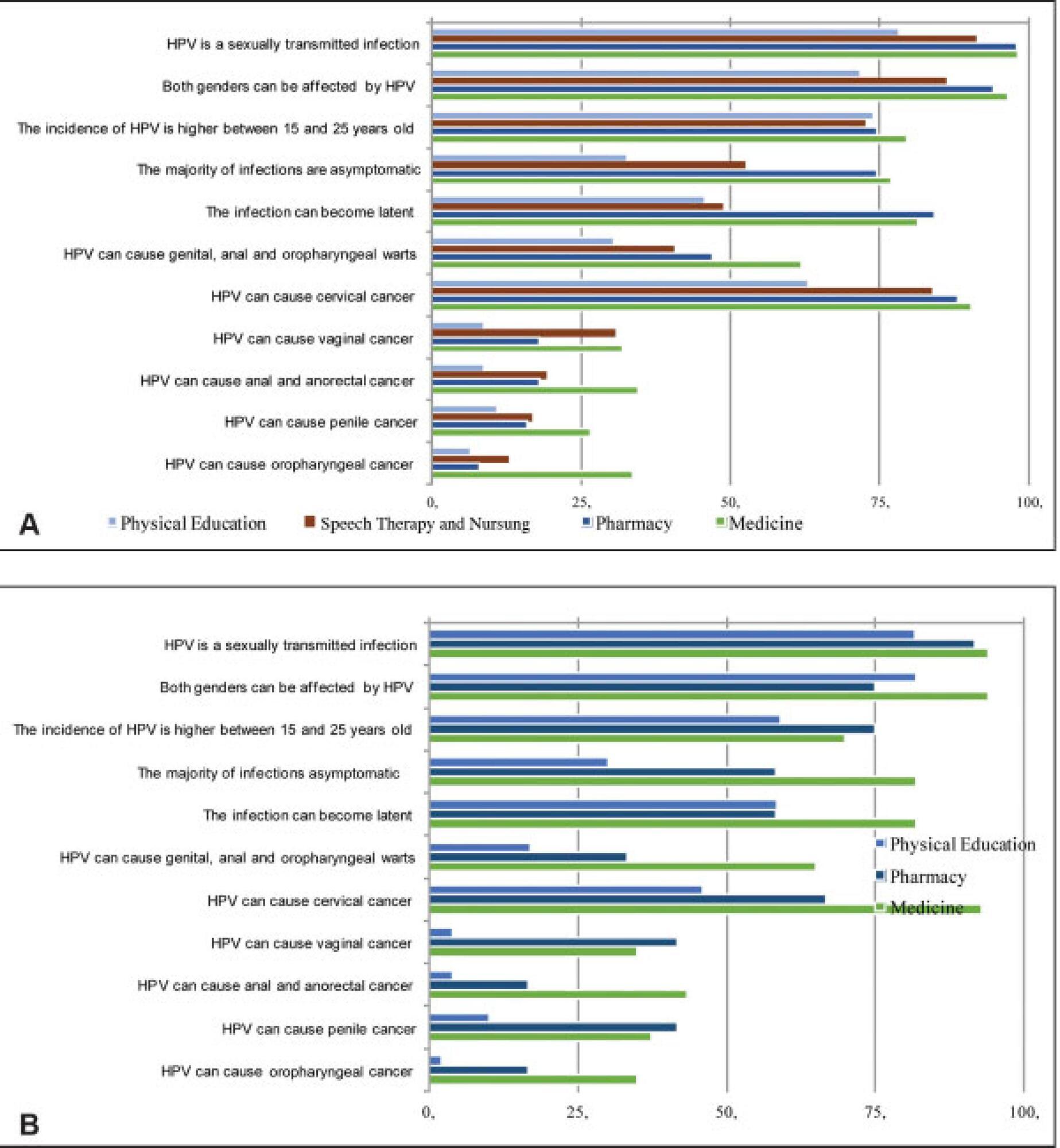You searched for:"Sophie Françoise Mauricette Derchain"
We found (27) results for your search.Summary
Rev Bras Ginecol Obstet. 2005;27(12):737-743
DOI 10.1590/S0100-72032005001200006
PURPOSE: to evaluate the frequency of anxiety and depression in main caretakers of patients with terminal breast or gynecological cancer. METHODS: for this cross-sectional study, 133 informal caretakers of terminally-ill breast and gynecologic cancer patients were included. Patients were hospitalized for palliative care in the Oncology Clinic of the "Centro de Atenção Integral à Saúde da Mulher (Campinas, Brasil) from August 2002 to May 2004. Seventy-one of the patients had breast cancer and 62 had gynecological malignancies. Hospital Anxiety and Depression Scale (HAD) was applied to these informal caretakers, in order to detect anxiety and depression, and they were also interviewed to provide additional information regarding their age, gender, religion, relation to patient, current occupation, if they cared for other people, whether their routine had changed and whether other people helped them to care for the patient. Logistic regression was used to calculate the odds ratio (OR) and its confidence interval (CI), used to assess the relationship between the diagnoses of anxiety and depression among the informal caretakers. For multiple analyses, the stepwise criterion for variable selection was used. RESULTS: 43% percent of the patients identified their daughters as their main caretaker, and 24%, their husbands. Most of the caretakers were over 35 years old (63%), 68% were female, 59% were unemployed, 47% cared for another person and 84% referred that his/her routine had changed because of caring. Anxiety was detected in 99 caretakers (74.4%) and depression in 71 (53.4%). Anxiety and depression were strongly correlated (odds ratio 5.6; 95% confidence interval 2.2 to 15.9). Bivariate analysis disclosed that the patients' husbands were less affected by depression, but multivariate analysis revealed that only the fact of being male was related to a lower prevalence of anxiety. CONCLUSION: caring for terminally-ill cancer patients led to high prevalence of anxiety and depression. Only men and the patients' husbands were found to have a lower prevalence of anxiety.
Summary
Rev Bras Ginecol Obstet. 2020;42(2):96-105
To evaluate the knowledge related to human papillomavirus (HPV) infection and the rate of HPV vaccination among undergraduate freshmen and senior students of medicine, pharmacy, speech therapy, nursing and physical education in a Brazilian university.
A questionnaire concerning sociodemographic aspects, sexual background, and knowledge about HPV and its vaccine was filled out by 492 students. Three months later, a second questionnaire, concerning the new rate of vaccination, was applied to 233 students.
Among the 290 women who answered the first questionnaire, 47% of the freshmen and 13% of the seniors stated they were not sexually active, as well as 11% of the 202 freshman and senior male students. Although the knowledge about HPV was higher among women, they reported a lower use of condoms. More than 83% of the women and 66% of the men knew that HPV can cause cervical cancer, but less than 30% of the students knew that HPV can cause vulvar, anal, penile and oropharyngeal cancer. Less than half of the students knew that HPV causes genital, anal and oropharyngeal warts. Comparing the students, the seniors had more knowledge of the fact that HPV is sexually transmitted, and that HPV infection can be asymptomatic. The rate of vaccination was of 26% for women, and of 8% for men, and it increased to 52% and 27% respectively among the 233 students evaluated in the second questionnaire.
As almost half of freshman women declared being sexually inactive, the investment in public health information programs and easier access to the HPV vaccine seem to be a useful strategy for undergraduate students.

Summary
Rev Bras Ginecol Obstet. 1998;20(2):97-104
DOI 10.1590/S0100-72031998000200007
The purpose of the present study was to compare postoperative complications and recurrence rates in 132 women with invasive vulvar carcinoma treated by radical vulvectomy and bilateral groin lymphadenectomy performed with one or three incisions. It was a nonrandomized retrospective clinical study, including 65 women operated using a single incision and 67 with three incisions, between 1986 and 1996. Fischer's, chi-square, Student's t tests followed by logistic regression were used for statistical analysis as well as survival curves by the Kaplan-Meyer method, compared using Wilcoxon test, followed by Cox regression, with the statistical significance limit of 5%. The groups were similar regarding age, smoking, presence of other diseases, histologic type and grade. Pathologic stage III was significantly more frequent in the single incision group, while free lymph nodes were more frequent in the three-incision group. The patients treated with triple incision showed statistically less frequent immediate complications (76% vs 92%, p<0.05), less dehiscence (72% vs 92%, p<0.01), and shorter mean hospital stay (19.4 days vs 38.7 days, p<0.001) and secondary procedures were less necessary (76% vs 94%, p<0.01). Seven postoperative deaths were observed: five with single incision and two with triple incision. Recurrence rate was statistically lower in patients treated with triple incision (19% vs 35%, p<0.01) and with negative lymph nodes (6% vs 15%, p<0.01). After Cox regression, only positive lymph nodes had negative influence on disease-free survival. We concluded that vulvectomy using three incisions shows less complications than single incision, without compromising therapeutic efficacy, independently of the stage of the disease.